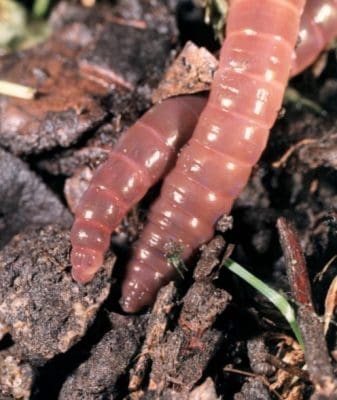THE digging, stirring and overturning of soil by conventional ploughing in tillage farming is severely damaging earthworm populations around the world, according to research by scientists in Ireland and Spain.
The findings published in the scientific journal Global Change Biology show a systematic decline in earthworm populations in soils that are ploughed every year. The deeper the soil is disturbed the more harmful it is for the earthworms.
The scientists from the University of Vigo, Spain, and University College Dublin, Ireland, analysed 215 field studies from across 40 countries dating back as far as 1950.
Each of the studies investigated earthworm populations under conventional tillage and other forms of reduced tillage.
“What we see is a systematic decline in the earthworm population in the soil after continued ploughing and a significant increase in the abundance of earthworms in less disturbed soil, although some soils would need more than 10 years to show good signs of recovery,” University College Dublin School of Agriculture and Food Science associate professor, Olaf Schmidt, said.
According to the findings, the earthworm populations most vulnerable to tillage are larger earthworms that move between layers of soil and create permanent burrows between them (anecic earthworms).
Small earthworms that live in the top layers of soil and convert debris to topsoil (epigeic earthworms) were also found to be highly susceptible.
Farming practices that involve no-tillage, conservation agriculture and shallow non-inversion tillage were shown to significantly increase earthworm populations.
The scientists note that these reduced tillage practices are increasingly being adopted world-wide due to their environmental benefits in terms of erosion control and soil protection.
“Our study also identifies the conditions under which earthworms respond most to a reduction in tillage intensity. These findings can be translated into advice for farmers in different parts of the world,” the University of Vigo’s Professor Maria Briones said.
“For example, strong results are achieved in soils with higher clay contents (>35pc) and low pH (<5.5), and retaining organic harvest residues amplifies the effects. The controversial herbicide glyphosate did not significantly affect earthworm population responses to reduced tillage.”
Earthworms are critical to the maintenance of soil functions and the ecosystem services we expect from them.
The great evolutionary biologist, Charles Darwin called earthworms “nature’s plough” because they continually consume and defecate soil enhancing its fertility in the process.
In his experiments in England in the late 1800s, Darwin found about 54,000 earthworms inhabited each acre of land and that each of these populations turn over tens of tons of topsoil every year.
Recognising the critical ecological value of earthworms, Darwin wrote: “It may be doubted whether there are any other animals which have played so important a part in the history of the world as have these lowly, organized creatures.”
Professor Briones said switching to reduced tillage practices was a win-win situation for farmers because they saved costs and in return larger earthworm populations helped in soil structure maintenance and nutrient cycling.
Source: University College Dublin.


This was first recognised by the father of No Tillage of the modern era – Edward H Faulkner who authored the 1943 publication ‘Plowmans Folly’ .
It can be summarised in one sentence – ‘No one has ever advanced a scientific reason for plowing”.